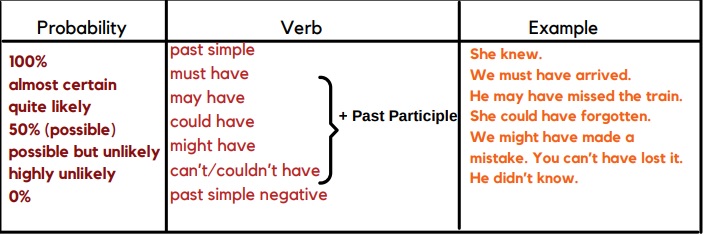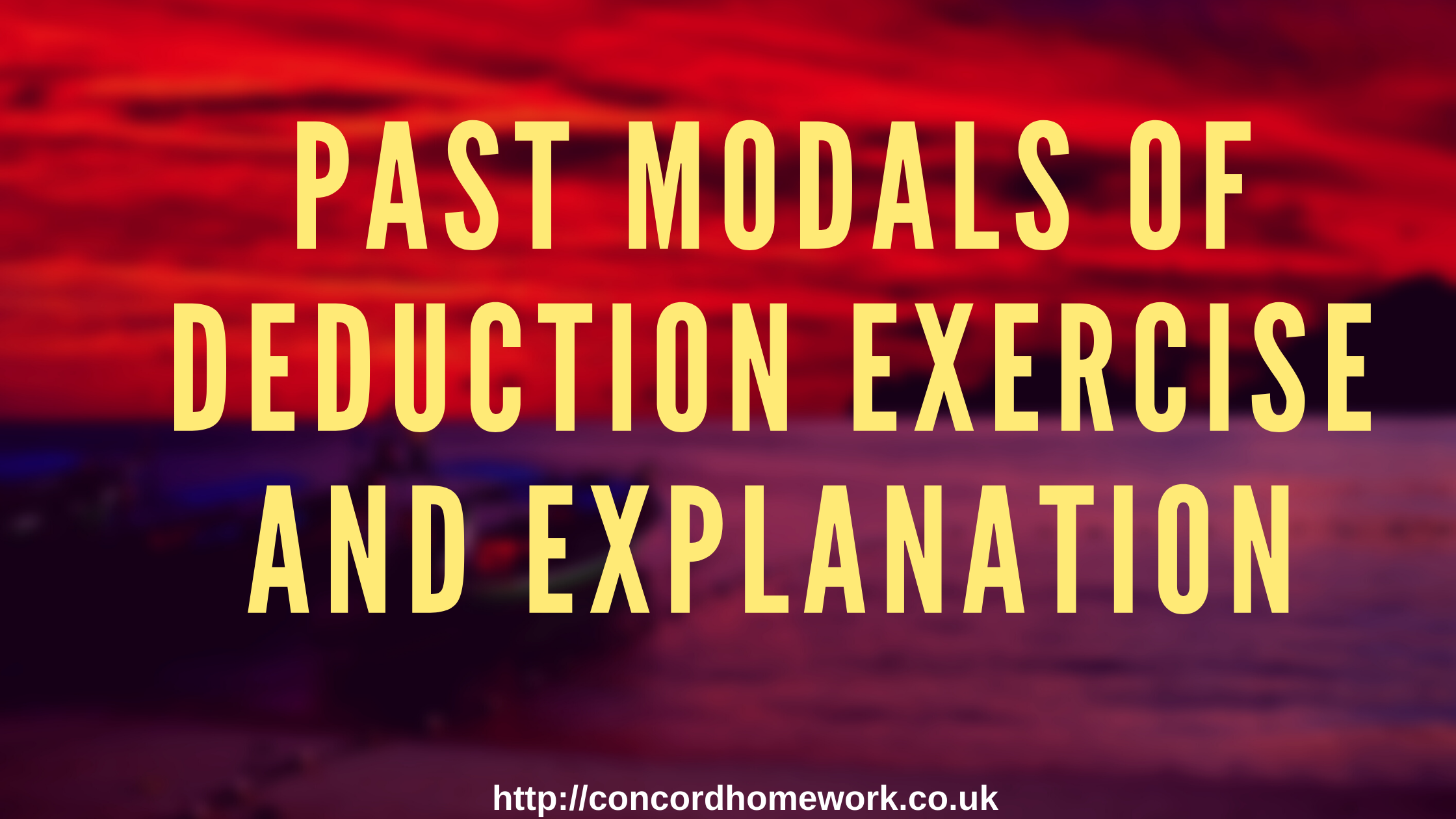MODALS (PAST DEDUCTION) Verbs: modals of past probability
* When we know that something happened in the past, we use a normal past tense.
(He did it, I saw them, etc.) If we are not completely sure, we use a modal (must,
may, might, could + have). The choice of modal depends on the degree of certainty,
as in the following table.

*Use modal perfects to make guesses (deductions) about things in the past. The modal perfect is formed with a modal verb (e.g must, can, should) + have + past participle.
*Use “should have” to say something was a good idea, but it didn’t happen.
To join the online meeting on time they should have asked about the meeting information beforehand.
*Use “shouldn’t have” to say something wasn’t a good idea, but it happened. She shouldn’t have drunk five cups of coffee. She doesn’t feel alright.
*Use “might have” to say that it is possible, but not certain, that something happened. He might have jumped the fence to enter his aunt’s house.
*Use “must have” to say it is logically certain that something happened. There’s bear footprints in the yard so it must have been there first.
*Use “couldn’t have” to say that it is not possible that something happened. The German football team couldn’t have won the game because their famous forward was injured.
Download “Past Modals of Deduction Explanation” in PDF.
Download “Past Modals of Deduction exercise” in PDF.
Navigating the Past: Understanding Modals of Past Probability in English Language
Modals of past probability, also known as modals for past deduction, are used in English to express likelihood or certainty about past events or situations. These modals help convey the speaker’s opinion or judgment regarding the likelihood of something having occurred in the past. They allow us to speculate about past events based on available evidence or information.
In English, the most commonly used modals for past probability are “must have,” “might have,” “could have,” and “can’t have.” Here’s a brief explanation of each:
- Must have: This modal is used to express a high degree of certainty or probability about a past event. It suggests that the speaker is confident that something happened based on strong evidence or logical deduction. For example, “She must have forgotten her keys at home.”
- Might have: This modal indicates a possibility or likelihood of something happening in the past, but with less certainty compared to “must have.” It suggests that the speaker is considering a possible scenario based on available information. For instance, “He might have missed the bus.”
- Could have: Similar to “might have,” this modal expresses a possibility or potentiality regarding a past event. It implies that the speaker is considering various options or alternatives without being entirely sure. For example, “They could have gone to the concert last night.”
- Can’t have: This modal is used to express a strong belief or certainty that something did not happen in the past. It implies that the speaker is confident in ruling out a particular possibility based on evidence or logic. For instance, “He can’t have finished his homework already.”
These modals are valuable in English language learning as they allow speakers to discuss past events and situations with different levels of certainty or probability. They enable learners to express their opinions, make deductions, and convey nuanced meanings in conversations and written texts. Understanding how to use modals of past probability enhances learners’ ability to communicate effectively and accurately in English.
“Thank you for taking the time to explore this topic with us! We hope you found the information helpful and insightful. Have any thoughts, questions, or additional examples to share? We’d love to hear from you in the comments below!
Don’t forget to spread the word by sharing this blog with your friends, family, and colleagues. Together, let’s continue to learn, grow, and connect with the world around us. Happy reading and sharing!”




















